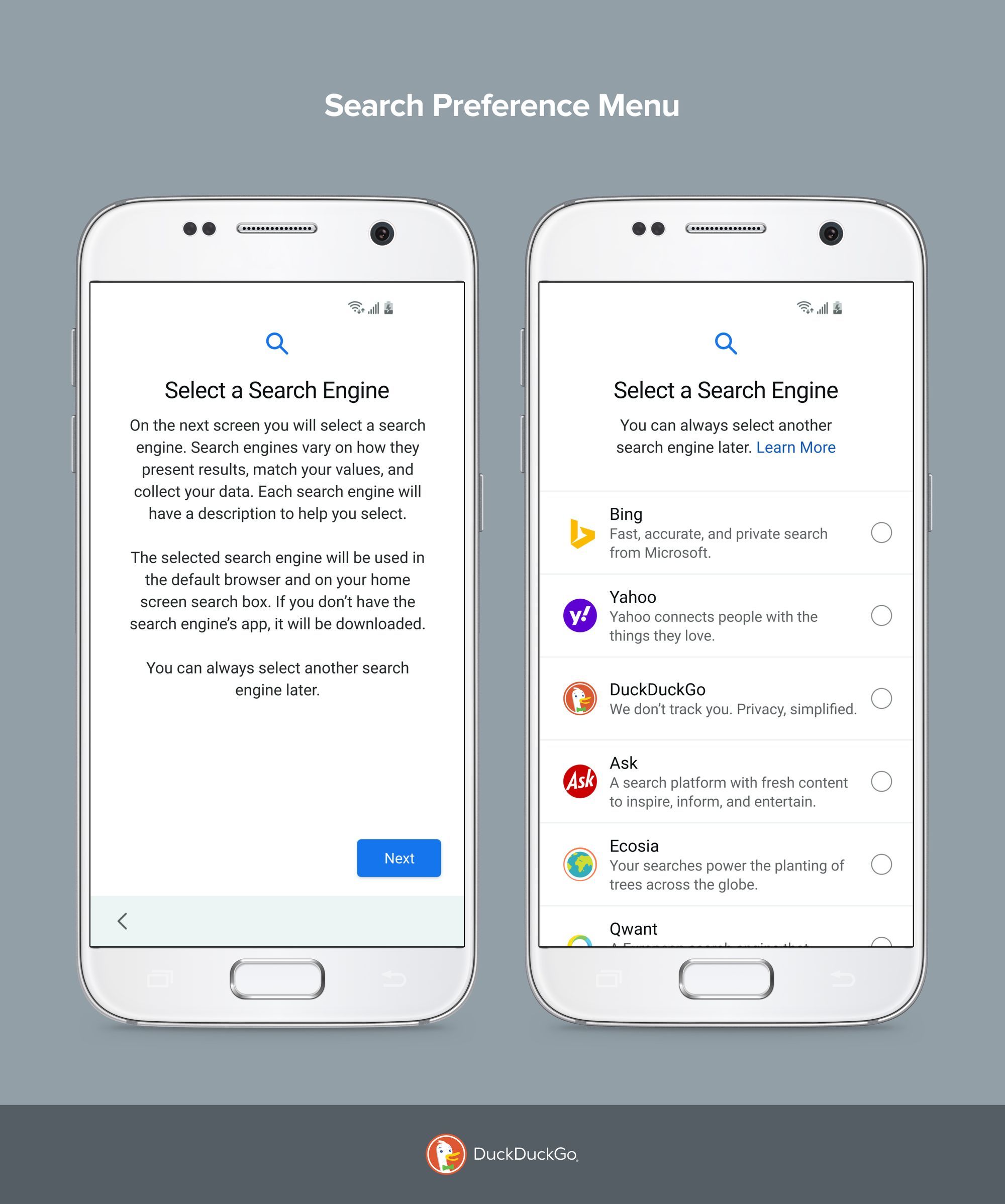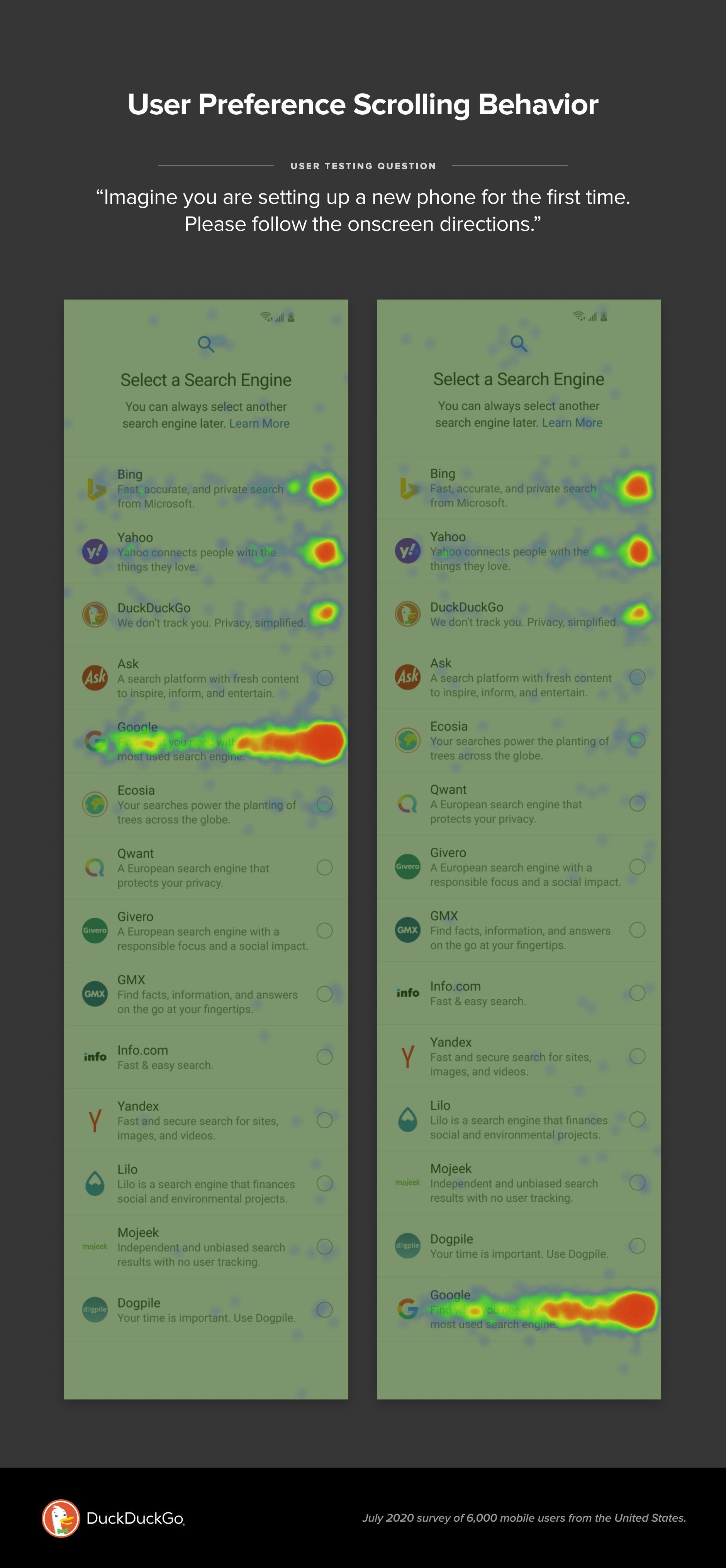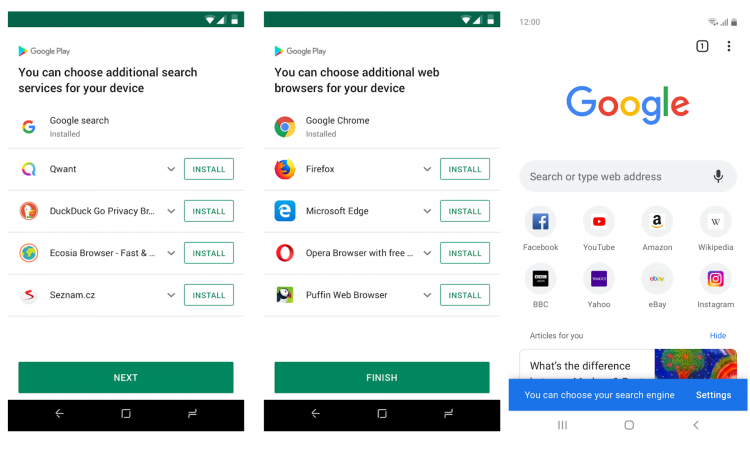DuckDuckGo’s proposal to make Google’s search market share drop around 20%

DuckDuckGo this month revealed results of a study showing that 24% of people in the U.S., 24% in the U.K., and 17% in Australia would choose a non-Google search engine when given the chance to select a preference on their mobile phones.
The study was sponsored by DuckDuckGo, conducted on UsabilityHub, using random samples of 12,000 mobile device users sourced from Cint, in the US, in the UK, and Australia.
According to DuckDuckGo, the user testing shows people will scroll to check out their options before making a search engine selection, meaning Google can be placed on the last screen of any search preference menu.

DuckDuckGo is trying to push a design for a mobile search preference menu, where users can choose their search engine, instead of having one search engine by default.
Google’s current market share of search is above 95% in Australia, in the US, and in the UK.
With a mobile search preference menu, DuckDuckGo says Google’s mobile market share is likely to drop by 20% in the US, 22% in the UK, and 16% in Australia. DuckDuckGo explains that people would finally be able to easily change their search defaults and become aware of search engine alternatives.
DuckDuckGo proposes that alternative search engines with the most market share in a given market are shown on the first screen, while Google is placed on the last screen.
DuckDuckGo's proposal is similar to the EU antitrust measure against Google, where on Android, Google is asking users which browser they want to use:

DuckDuckGo is providing the results of the studies to the US, the UK competition authorities, and the Australian Competition and Consumer Commission (ACCC), as part of the ongoing discussions about search preference menus.
DuckDuckGo has now more than 60 million queries per day, in average. A growth of 30% year over year.
Browsers will not be happy if there is such preference menu, as Google reportedly have deals with Apple (Safari) and with Mozzila (Firefox). These deals make Google the search engine by default, in an exchange of billions of US dollars.

